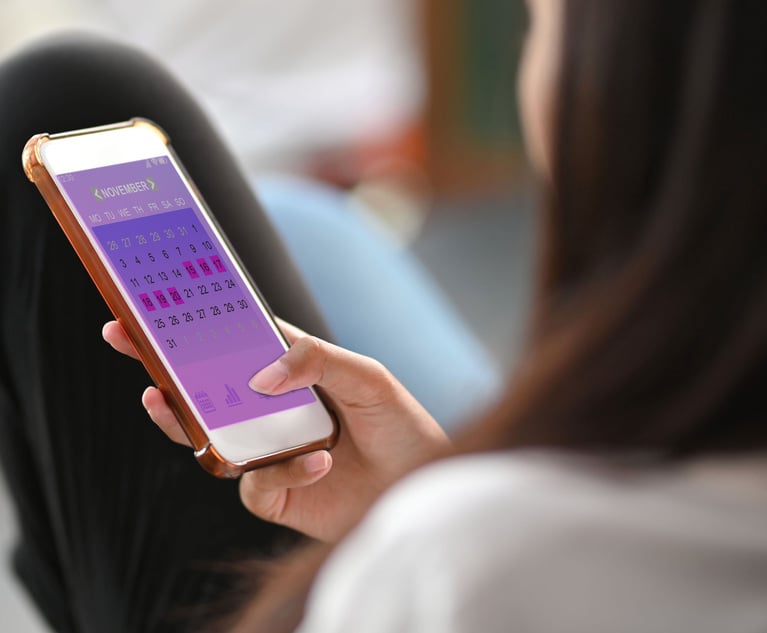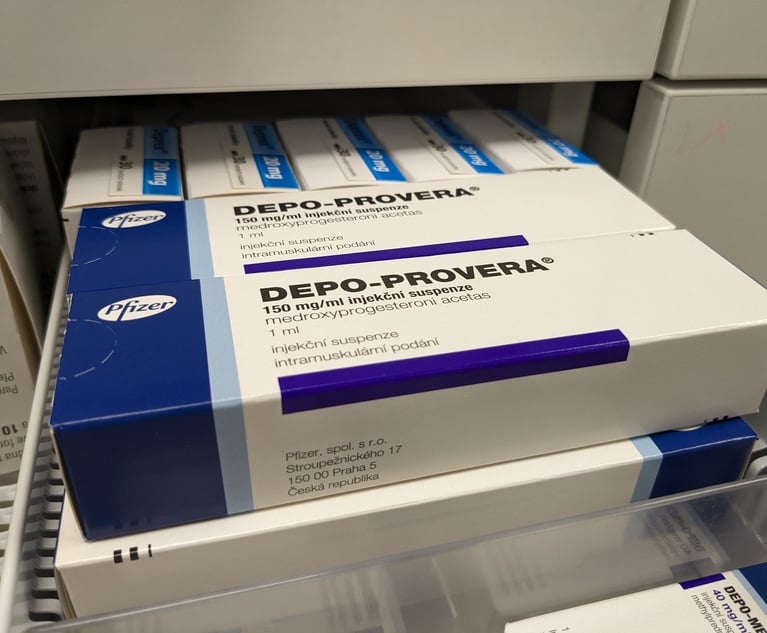 Photo: Shutterstock
Photo: Shutterstock2nd Circuit's Decision Could Be 'Tip of the Iceberg' for FCPA Challenges
The appellate court ruled that prosecutors do not have to prove that a bribe was paid in exchange for an “official act” in Foreign Corrupt Practices Act cases.
August 13, 2019 at 03:38 PM
4 minute read
The original version of this story was published on Corporate Counsel
In a ruling that could embolden federal anti-corruption prosecutors, the U.S. Court of Appeals for the Second Circuit has ruled that it’s not necessary to meet the heightened standard of proving that a bribe was paid in exchange for an “official act” in Foreign Corrupt Practices Act cases.
The decision in U.S. v. Ng Lap Seng is a clear win for the Justice Department and marks the first time that a circuit court has applied the official act rule, which the U.S. Supreme Court established in McDonnell v. U.S., to the FCPA.
“People on the defense side of FCPA cases have long felt that the agencies have taken a tremendously extensive view of their jurisdiction to prosecute FCPA and types of conduct that are violative of the FCPA—and this does nothing to rein that in,” said Emily Westridge Black, a partner at Haynes and Boone in Austin, Texas, and Dallas, who specializes in FCPA litigation.
She added, “We can expect that this will not curb and will likely increase enforcement action.”
Black also saw the decision as a signal of things to come, describing it as the “tip of the iceberg in terms of people testing the FCPA.” Since the Justice Department launched the FCPA pilot program in 2016, prosecutors have focused more on individual accountability. And whereas companies tend to settle FCPA cases because they have so much to lose, individuals are more inclined to take their chances at trial, which has led to more challenges to the scope of the FCPA.
“On the one hand, we’re seeing extensive prosecutions, but we’ll also see people making these interesting defense arguments that have been percolating in the defense community for a while,” Black said. “Looking forward, we’ll have a much better sense of the true scope of the FCPA five to 10 years from now.”
The defendant in the case, Ng Lap Seng, a wealthy Chinese real estate developer, was convicted of paying bribes and gratuities to United Nations officials in violation of the FCPA. On appeal, he argued, in part, that the trial judge had erred in failing to instruct the jury on the McDonnell standard.
But the Second Circuit held that McDonnell doesn’t apply to the FCPA or Section 666, a law that addresses bribery that involves federal funds, because both laws have a more expansive definition of bribery.
“The way I read McDonnell, it wouldn’t apply on its face to the FCPA,” said Jason Jones, a partner in King & Spalding’s special matters and government investigations practice in Washington, D.C. “The Second Circuit seems to me to have gotten it right.”
Jones noted the decision also clarified the “FCPA clearly requires a quid pro quo,” meaning that proving a defendant offered or provided payment, even for a corrupt purpose, isn’t enough by itself to satisfy the statute.
“It’s just that the quo is a lot broader under the FCPA,” he added. “I think it’s good clarity, but I don’t think it would be a surprise to most prosecutors.”
Read More:
This content has been archived. It is available through our partners, LexisNexis® and Bloomberg Law.
To view this content, please continue to their sites.
Not a Lexis Subscriber?
Subscribe Now
Not a Bloomberg Law Subscriber?
Subscribe Now
NOT FOR REPRINT
© 2024 ALM Global, LLC, All Rights Reserved. Request academic re-use from www.copyright.com. All other uses, submit a request to [email protected]. For more information visit Asset & Logo Licensing.
You Might Like
View All

From 'Confusing Labyrinth' to Speeding 'Roller Coaster': Uncertainty Reigns in Title IX as Litigators Await Second Trump Admin
6 minute read
New Class Action Points to Fears Over Privacy, Abortions and Fertility
Trending Stories
- 1Friday Newspaper
- 2Judge Denies Sean Combs Third Bail Bid, Citing Community Safety
- 3Republican FTC Commissioner: 'The Time for Rulemaking by the Biden-Harris FTC Is Over'
- 4NY Appellate Panel Cites Student's Disciplinary History While Sending Negligence Claim Against School District to Trial
- 5A Meta DIG and Its Nvidia Implications
Who Got The Work
Michael G. Bongiorno, Andrew Scott Dulberg and Elizabeth E. Driscoll from Wilmer Cutler Pickering Hale and Dorr have stepped in to represent Symbotic Inc., an A.I.-enabled technology platform that focuses on increasing supply chain efficiency, and other defendants in a pending shareholder derivative lawsuit. The case, filed Oct. 2 in Massachusetts District Court by the Brown Law Firm on behalf of Stephen Austen, accuses certain officers and directors of misleading investors in regard to Symbotic's potential for margin growth by failing to disclose that the company was not equipped to timely deploy its systems or manage expenses through project delays. The case, assigned to U.S. District Judge Nathaniel M. Gorton, is 1:24-cv-12522, Austen v. Cohen et al.
Who Got The Work
Edmund Polubinski and Marie Killmond of Davis Polk & Wardwell have entered appearances for data platform software development company MongoDB and other defendants in a pending shareholder derivative lawsuit. The action, filed Oct. 7 in New York Southern District Court by the Brown Law Firm, accuses the company's directors and/or officers of falsely expressing confidence in the company’s restructuring of its sales incentive plan and downplaying the severity of decreases in its upfront commitments. The case is 1:24-cv-07594, Roy v. Ittycheria et al.
Who Got The Work
Amy O. Bruchs and Kurt F. Ellison of Michael Best & Friedrich have entered appearances for Epic Systems Corp. in a pending employment discrimination lawsuit. The suit was filed Sept. 7 in Wisconsin Western District Court by Levine Eisberner LLC and Siri & Glimstad on behalf of a project manager who claims that he was wrongfully terminated after applying for a religious exemption to the defendant's COVID-19 vaccine mandate. The case, assigned to U.S. Magistrate Judge Anita Marie Boor, is 3:24-cv-00630, Secker, Nathan v. Epic Systems Corporation.
Who Got The Work
David X. Sullivan, Thomas J. Finn and Gregory A. Hall from McCarter & English have entered appearances for Sunrun Installation Services in a pending civil rights lawsuit. The complaint was filed Sept. 4 in Connecticut District Court by attorney Robert M. Berke on behalf of former employee George Edward Steins, who was arrested and charged with employing an unregistered home improvement salesperson. The complaint alleges that had Sunrun informed the Connecticut Department of Consumer Protection that the plaintiff's employment had ended in 2017 and that he no longer held Sunrun's home improvement contractor license, he would not have been hit with charges, which were dismissed in May 2024. The case, assigned to U.S. District Judge Jeffrey A. Meyer, is 3:24-cv-01423, Steins v. Sunrun, Inc. et al.
Who Got The Work
Greenberg Traurig shareholder Joshua L. Raskin has entered an appearance for boohoo.com UK Ltd. in a pending patent infringement lawsuit. The suit, filed Sept. 3 in Texas Eastern District Court by Rozier Hardt McDonough on behalf of Alto Dynamics, asserts five patents related to an online shopping platform. The case, assigned to U.S. District Judge Rodney Gilstrap, is 2:24-cv-00719, Alto Dynamics, LLC v. boohoo.com UK Limited.
Featured Firms
Law Offices of Gary Martin Hays & Associates, P.C.
(470) 294-1674
Law Offices of Mark E. Salomone
(857) 444-6468
Smith & Hassler
(713) 739-1250









